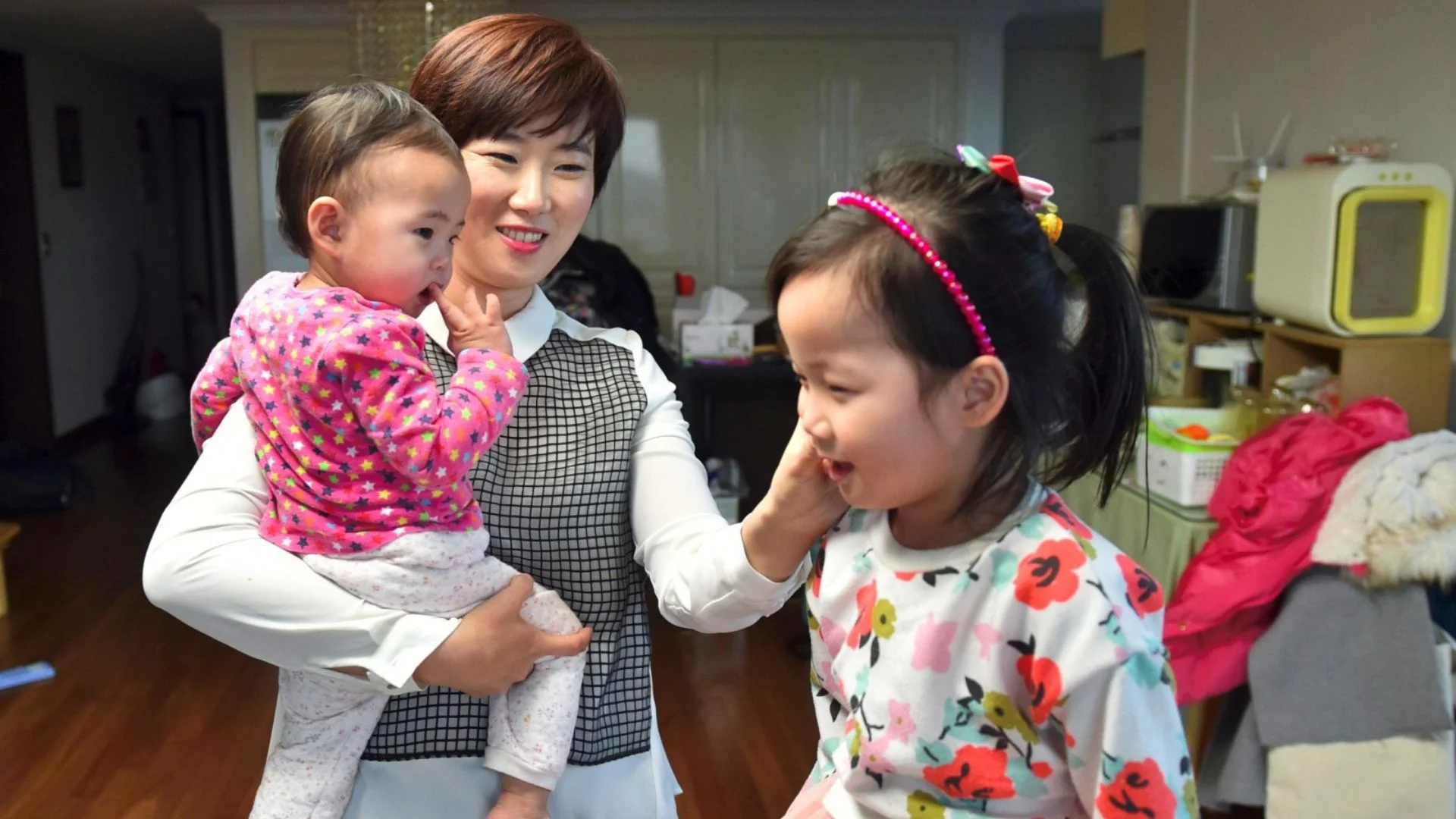Historic Low Fertility Rate Drives New Childcare Initiative
South Korea, facing the world’s lowest fertility rate of 0.78, has introduced a new policy to address its demographic crisis. Despite investing approximately 380 trillion won (US$284 billion) over 17 years to boost birth rates, the nation’s population continues to decline. The government, led by President Yoon Suk Yeol, is now implementing a program to bring in foreign nannies as part of a broader effort to reverse the trend.
Foreign Nannies to Provide Childcare Support
Starting Tuesday, South Korea will allow 100 Filipino nannies to work in the country, with plans to increase this number to around 1,200 by mid-2025. These nannies, aged 24 to 38, hold Caregiving National Certification Level II from the Philippines and have undergone comprehensive training, including basic Korean language skills.
The nannies will work under an E-9 visa, which permits employment in non-professional sectors, and will be part of a pilot program limited to Seoul. This six-month initiative aims to provide affordable childcare for households with children under 12, single-parent families, and those with multiple children, with priority given to families with younger children.
Cost Concerns and Criticisms
The program’s cost remains a significant issue, with hiring a foreign nanny expected to cost about 2.38 million won per month—nearly half the average Korean household’s monthly income. This has raised concerns about affordability for average families. Senior presidential secretary You Hye-mi acknowledged the complaints and indicated efforts to reduce individual cost burdens.
Criticism has also come from labour activists and migrant rights groups. Seoul Mayor Oh Se-hoon’s earlier proposal to lower the cost to 1 million won per month faced backlash for not meeting minimum wage standards. The Ministry of Employment and Labour has since set the rate at 9,860 won per hour, aligning with the national minimum wage.
Additional controversy surrounds a bill proposed by Rep. Cho Jung-hun, which seeks to exclude foreign nannies from minimum wage requirements, a move condemned by human rights organizations for violating international labor standards.
Program’s Impact and Future Prospects
The foreign nanny program is part of South Korea’s broader strategy to increase female workforce participation, crucial for improving the birth rate. With dual-income households rising to 5.82 million in 2021, the government hopes that better childcare options will encourage young couples to have more children.
However, experts express caution, noting concerns about illegal immigration and potential exploitation of foreign workers. Professor Jeong Jae-youn of Myongji University highlighted the growing number of illegal immigrants in South Korea, calling for better regulatory measures.
The South Korean Labour Ministry plans to assess the initial six-month pilot program before deciding on further expansion, aiming to address the country’s ongoing demographic challenges.







